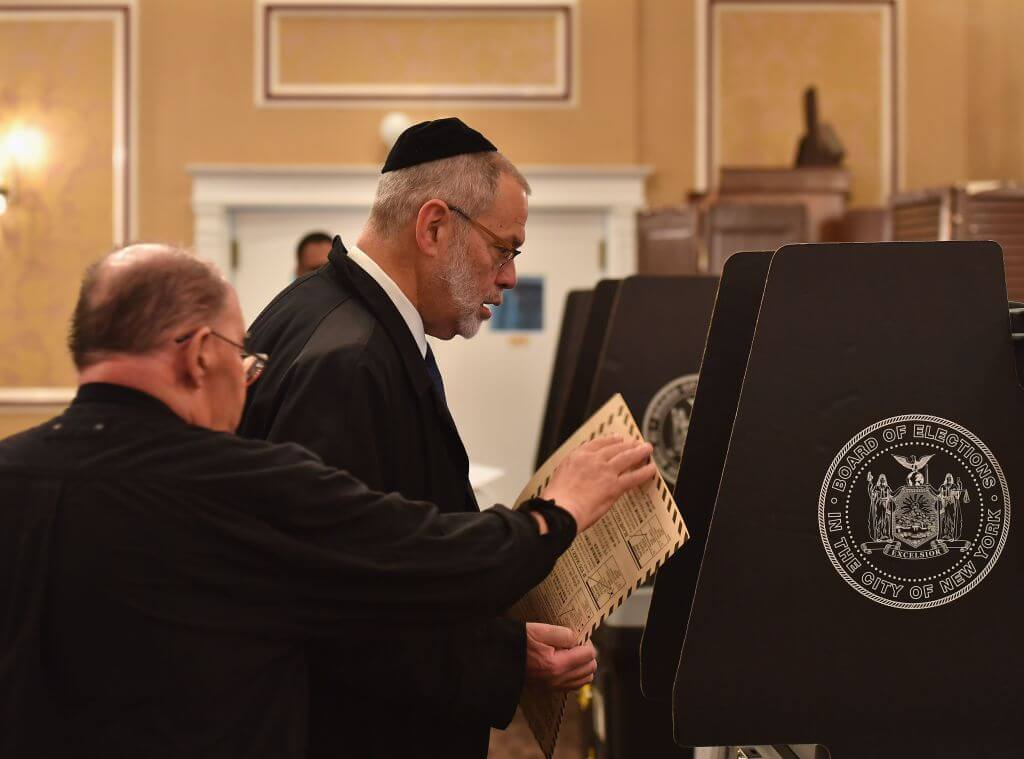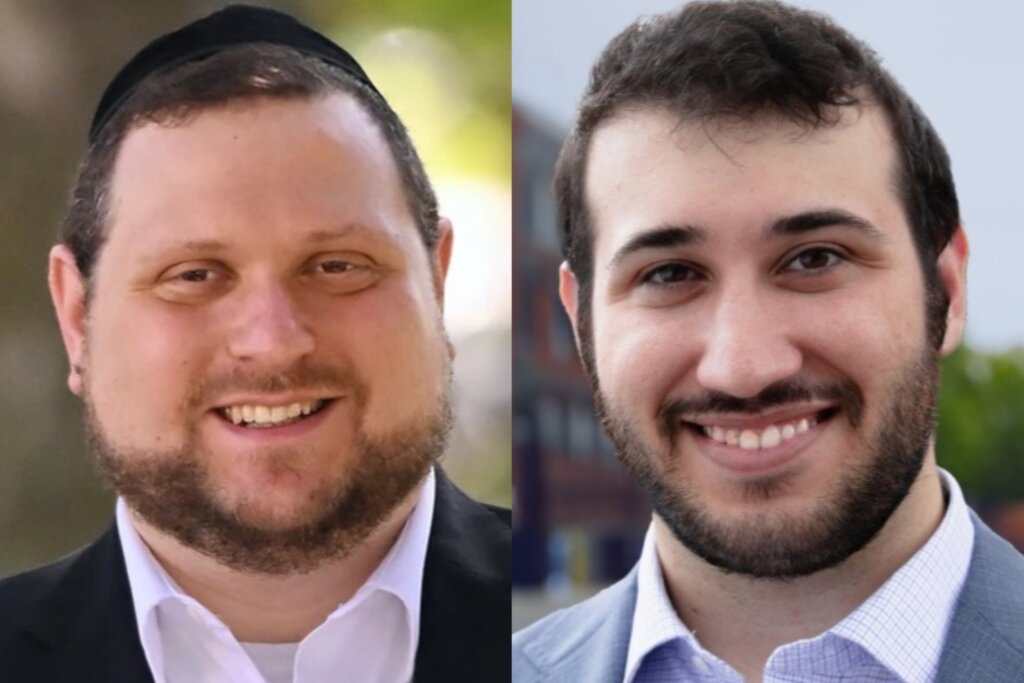Special election: Two Orthodox candidates face off in a close race for NY Assembly
Lee Zeldin, the GOP gubernatorial nominee, last year won in the predominantly Democratic district

A Jewish voter in New York City on Nov. 6, 2018. Photo by Angela Weiss/AFP via Getty Images
Republicans are hoping for an upset in Queens on Tuesday in a state Assembly race that pits two Orthodox candidates against each other.
There is precedent for a GOP ousting of a Democrat in heavily-Democratic Queens.
Twelve years ago a little-known Republican businessman, Bob Turner, beat an Orthodox Democrat by tapping into voter discontent with then-President Barack Obama.
In this week’s contest, Republicans are trying to mobilize their base by capitalizing on dissatisfaction with the way Democrats have handled immigration and other issues.
“How cool would it be for the Democrats to be waking up Wednesday morning and saying, ‘Holy schnitzel!’” former Congressman Lee Zeldin said during a get-out-the-vote rally on Sunday for the Republican candidate, David Hirsch, outside “Holy Schnitzel,” a kosher take-out joint.
A Democratic stronghold … for now
The 27th Assembly District, which includes most of the Central Queens’ Jewish community, including the neighborhoods of Key Garden Hills and College Point, has historically been held by Democrats. Registered Democrats outnumber registered Republicans 4-1. The seat was vacated this spring by Democrat Daniel Rosenthal, one of the youngest and most influential Jewish politicians in the state, who left for a top job at the UJA-Federation of New York.
The Democratic nominee in Tuesday’s election, Sam Berger, a 25-year-old law school graduate, was handpicked by local leaders, and top Democratic officials have mobilized to support him.

But Republicans have made some gains in the district in recent years. Zeldin, the Republican gubernatorial nominee in last year’s election, carried the district by 12 points over Gov. Kathy Hochul. Rosenthal still won reelection despite his public backing of Hochul. But given current concerns about New York’s mounting migrant crisis, with Republican governors sending thousands of asylum seekers to New York, the GOP is predicting an opening for a Republican. Low turnout may also boost Hirsch.
Both candidates are Orthodox and courted the more conservative Orthodox electorate, and competed for the endorsements of prominent rabbis.
Democrats’ closing arguments
In an interview, Berger presented himself as a moderate, like his predecessor, who would be a “voice of reason” in the Democratic-controlled state legislature at a time of extreme polarization on both sides of the political spectrum. The Jewish Press, a New York conservative-leaning news outlet, endorsed Berger, writing that “it is in the best interests of our community to avoid a ‘go down with the ship’ attitude and blindly vote Republican.”
Berger has argued that a Republican win in the Assembly — where Democrats hold 100 of its 150 seats — would potentially weaken his party’s ability to counter the more progressive elements within it on issues such as Israel. He pointed to the broad repudiation of a bill that would penalize New York-based nonprofits that support activities in Israeli settlements — a move led by Rosenthal earlier this year.
“It wasn’t a Republican who was able to fight the bill,” Berger said. “It was a moderate Democrat.”
“We deserve an Assemblyman who will not only stand up for public safety and common-sense policing, but who can make the connections to deliver the results we need,” read a letter signed by prominent rabbis and leaders.
Berger expressed cautious optimism that he would prevail. He’s received union support and he outraised and outspent his opponent by an 18-1 margin. Assembly Speaker Carl Heastie has reportedly reached out to leaders in the Orthodox community to support Berger’s campaign. “I’m feeling very positive about it,” Berger said. “But I will not take anything for granted.”
The GOP’s case
Hirsch, 34, whose experience is in policy consulting and political engagement, in a separate interview took issue with Berger’s analysis of the backlash to the settlements bill, arguing that the opposition of all 49 GOP members to it ensured its demise. In general, he argued, a Republican in the seat would benefit the district.
“I think actually, as a member of the minority party, flipping a district would actually give me more influence,” he said. “It would show the Democrats that they need to work towards helping this district rather than it being represented by another rank-and-file Democrat whom they can ignore.”
“I am feeling very comfortable,” Hirsch said of his chances.















